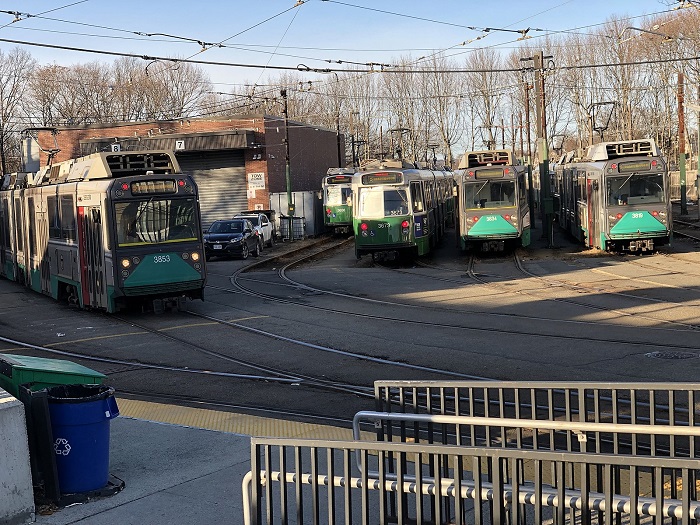Transit Coalition: MBTA Riders Need Low-Income Fare Option

Lily Bohlke – Commonwealth News Service
Advocates for equitable public transit are urging the Legislature to take action on free buses and low-income fares.
At last week’s Massachusetts Bay Transportation Authority (MBTA) Board meeting, officials shared results of a free bus pilot program in Boston, on Route 28.
They reported making the line free boosted ridership, but more than two-thirds of riders did not experience any savings, because they had to transfer to the T or the commuter rail and pay a fare there.
Stacy Thompson, executive director of the LivableStreets Alliance and co-chair of the Transit is Essential Coalition, recommended a low-income fare program, where low-income Commonwealth residents could purchase reduced-cost tickets across the system.
“The Transit is Essential Coalition has been a strong vocal and consistent advocate for systemwide low-income fares being implemented as soon as possible,” Thompson asserted.
Thompson emphasized it does not mean Massachusetts should not also separately offer free buses. She argued there are 15 regional transit authorities and some municipalities spending so much on collecting fares it is not worth it to have them.
Some cities, such as New York City, San Francisco, Seattle and Portland, have low-income fare programs, and officials have estimated a similar program in Massachusetts could serve up to 70,000 low-income residents, and cost tens of millions annually.
Thompson added free buses and low-income fares are often pitted against each other, but they are complementary.
“The 28 pilot in Boston has shown that making buses free reduces the dwell time or waiting time at a bus stop by 20%, increased ridership by 22%, and 5% of those riders were converted car trips, which is a really big deal in the climate sphere,” Thompson outlined.
MBTA bus fares have increased by more than 200% since 1991. The Transit is Essential Coalition formed during the pandemic to ensure full MBTA service was restored following cuts. They contended the transit system has long been underfunded, and it is important for the Legislature to step up with additional resources long-term.
